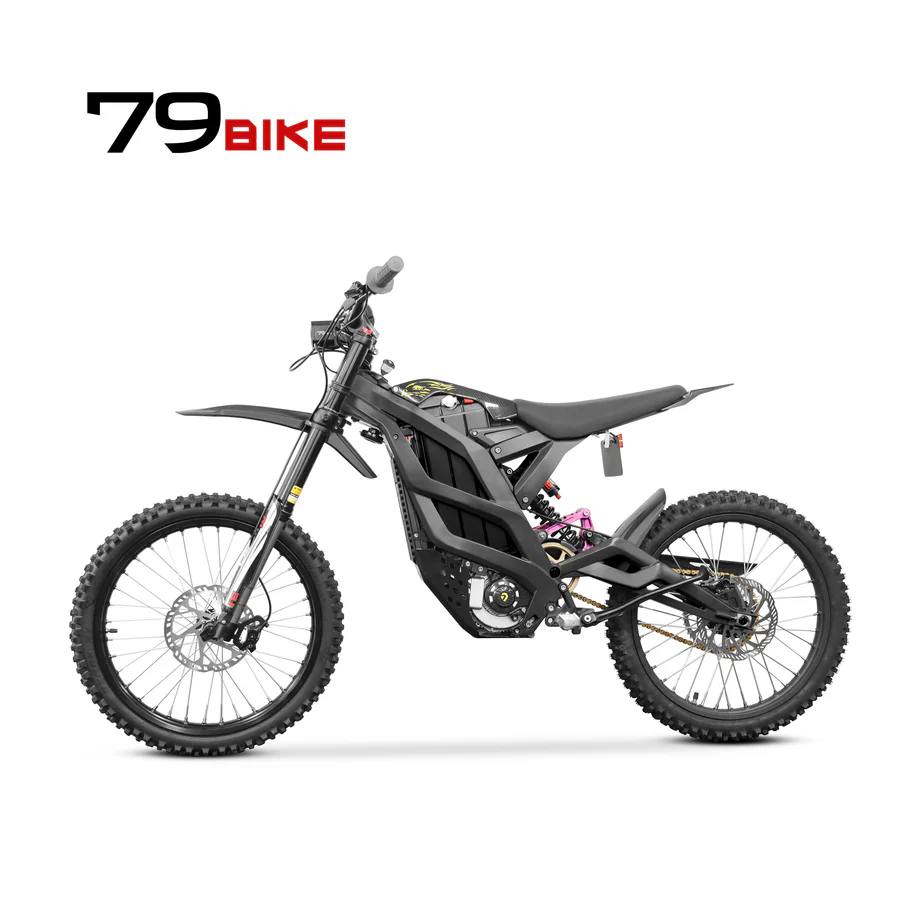Elektrinių dviračių transporto priemonių iškilimas šiuolaikiniame miesto transporte
Miesto transporto kraštovaizdisi patiria dramatišką permainą, kurios metu elektriniai motociklai elektriniai motociklai iškyla kaip patraukli kasdieninių vežėjų sprendimas. Tuo metu, kai miestai tampa vis labiau perkrauti, o aplinkos apsaugos klausimai išeina į pirmą planą, šie gracingi, nulinio išmetamojo teršalo lygio transporto priemonių modeliai sulaukia dėmesio tiek patyrusių vairuotojų, tiek tų, kurie ieško efektyvių alternatyvų tradicinėms vežimo priemonėms. Pažangių baterijų technologijų, patobulintos įkrovimo infrastruktūros ir augančio supratimo apie aplinkos apsaugą susiliejimas sukūrė idealias sąlygas elektriniams motociklams klestėti mūsų šiuolaikiniame pasaulyje.
Nors pradinė investicija į elektrinį motociklą gali atrodyti didelė, ilgalaikė nauda dažnai nusveria pradines išlaidas. Nuo sumažintų priežiūros reikalavimų iki didelių degalų sąnaudų sutaupymų – šios novatoriškos transporto priemonės keičia mūsų požiūrį į kasdienį transportą. Norint priimti pagrįstą sprendimą, ar elektrinis motociklas atitinka jūsų kelionių į darbą ir atgal poreikius ir finansinius tikslus, labai svarbu suprasti visus privalumus ir svarstytinus dalykus.
Elektromobilių nuosavybės finansinės pasekmės
Pradinis pirkimas ir ilgalaikė išlaidų analizė
Pradinė elektrinio motociklo kaina paprastai svyruoja nuo 5 000 iki 20 000 USD, priklausomai nuo modelio, prekės ženklo ir specifikacijų. Nors ši pradinė investicija gali būti didesnė nei panašių įprastų motociklų, laikui bėgant bendros eksploatavimo išlaidos dažnai pasirodo esančios ekonomiškesnės. Kainų skirtumas daugiausia susijęs su sudėtinga akumuliatorių technologija ir elektrinės pavaros komponentais, kurie varo šias transporto priemones.
Skaičiuojant ilgalaikį finansinį poveikį, reikia atsižvelgti į tai, kad elektriniams motociklams reikia gerokai mažiau priežiūros nei jų benzininiams analogams. Nereikia keisti alyvos, žvakių ar reguliariai prižiūrėti variklio. Dėl elektros variklio paprastumo yra mažiau judančių dalių, kurios gali susidėvėti arba kurias reikia keisti, todėl per visą transporto priemonės eksploatavimo laiką galima sutaupyti tūkstančius dolerių priežiūros išlaidų.
Veiklos išlaidos ir kasdienės santaupos
Elektrinio motociklo įkrovimo kaina yra gerokai mažesnė nei tradicinio benzininio motociklo įkrovimas. Vidutiniškai pilnas elektrinio motociklo įkrovimas kainuoja nuo 1,50 iki 3,00 USD, o tai leidžia nuvažiuoti 70–150 mylių, priklausomai nuo modelio ir važiavimo sąlygų. Palyginkite tai su įprasto motociklo degalų bako pildymo kaina, kuri gali lengvai viršyti 15–20 USD ir gali tekti tai daryti dažniau.
Papildoma finansinė nauda apima galimas mokesčių lengvatas, sumažintus draudimo tarifus kai kuriuose regionuose ir atleidimą nuo spūsčių mokesčių tam tikruose miestuose. Daugelis vyriausybių ir vietos valdžios institucijų siūlo nuolaidas arba mokesčių lengvatas elektromobilių pirkimui, kurios gali gerokai kompensuoti pradinę investiciją. Kai kurios draudimo bendrovės taip pat siūlo nuolaidas elektrinių motociklų savininkams, pripažindamos jų mažesnę rizikos profilį ir naudą aplinkai.
Aplinkosaugos ir praktinė nauda
Anglies dalelių pėdsakio sumažinimas
Elektrinis motociklas neišmeta jokių tiesioginių teršalų, todėl tai yra ekologiškas kasdienės transporto priemonės pasirinkimas. Įkraunant jį naudojant atsinaujinančius energijos šaltinius, bendras anglies pėdsakas tampa dar mažesnis. Tyrimai rodo, kad elektriniai motociklai gali sumažinti su transportu susijusį anglies dioksido išmetimą iki 90 %, palyginti su įprastomis transporto priemonėmis.
Poveikis aplinkai neapsiriboja vien išmetamųjų teršalų kiekiu. Elektriniai motociklai taip pat prisideda prie triukšmo taršos mažinimo miestuose, kurdami gyvenamesnius miestus ir bendruomenes. Šis aspektas ypač vertingas anksti ryte arba vėlai vakare į darbą važiuojantiems asmenims, norintiems kuo mažiau trikdyti kaimynus.
Praktiniai privalumai kasdieniam važinėjimui į darbą ir atgal
Elektriniai motociklai pasižymi keliais praktiniais privalumais, dėl kurių jie ypač tinka kasdieniam važinėjimui į darbą ir atgal. Momentinis sukimo momento tiekimas užtikrina greitą įsibėgėjimą iš sustojimo, todėl lengviau vairuoti miesto eismą. Sankabos ir pavarų nebuvimas supaprastina valdymą, sumažina motociklininko nuovargį važiuojant mieste dažnai sustojant ir pajudant iš vietos.
Elektrinių motociklų daiktų laikymo sprendimai dažnai būna gerai apgalvoti – daugelyje modelių yra vietos ten, kur tradiciškai būtų degalų bakas. Ši papildoma talpa leidžia patogiai nešiotis darbo reikmenis ar smulkius pirkinius. Tylus veikimas taip pat leidžia motociklininkams atvykti į kelionės tikslą labiau atsipalaidavusiems ir susikaupusiems.

Svarstymai ir galimi iššūkiai
Atstumas ir įkrovimo infrastruktūra
Nors elektrinių motociklų technologijos toliau tobulėja, potencialūs pirkėjai vis dar nerimauja dėl nuvažiuojamo atstumo. Dauguma šiuolaikinių elektrinių motociklų siūlo pakankamą atstumą įprastiems kasdieniams važinėjimo poreikiams, tačiau ilgesnėms kelionėms reikia kruopštesnio planavimo. Auganti įkrovimo infrastruktūra daugelyje miestų padeda sumažinti šiuos rūpesčius, nors jų prieinamumas gali labai skirtis priklausomai nuo vietos.
NAMAI elektromobilių savininkams įkrovimo sprendimai yra būtini. Specialios įkrovimo stotelės įrengimas gali pareikalauti pradinių investicijų, tačiau suteikia patogumo įkrovimui per naktį. Daugelyje darboviečių taip pat pradedamos siūlyti įkrovimo priemonės, dar labiau išplėsdamos kasdienių kelionių vairuotojų praktinį atstumą.
Orai ir sezoniniai aspektai
Akumuliatoriaus veikimą gali paveikti ekstremali temperatūra, ypač esant šaltam orui. Nors šiuolaikiniai elektriniai motociklai yra sukurti naudoti įvairaus klimato sąlygomis, vairuotojai turėtų žinoti, kad esant labai šaltam orui nuvažiuojamas atstumas gali sumažėti. Tinkamas akumuliatoriaus valdymas ir laikymas ne sezono metu yra svarbūs aspektai siekiant išlaikyti optimalų našumą.
Elektrinių motociklų siūloma apsauga nuo oro sąlygų yra panaši į įprastų modelių, todėl vairuotojai turi tinkamai pasiruošti skirtingoms oro sąlygoms. Tačiau paprastesni eksploatavimo ir priežiūros reikalavimai gali padaryti juos patikimesniais kelionių ištisus metus variantais.
Dažniausiai užduodami klausimai
Kiek laiko paprastai tarnauja elektrinių motociklų akumuliatoriai?
Dauguma šiuolaikinių elektrinių motociklų akumuliatorių yra skirti tarnauti nuo 8 iki 10 metų arba maždaug 160 000 km, priklausomai nuo naudojimo ir įkrovimo įpročių. Daugelis gamintojų siūlo 5 metų ar ilgesnę akumuliatoriaus garantiją, užtikrindami ilgalaikį saugumą.
Koks yra įprastas elektrinių motociklų įkrovimo laikas?
Įkrovimo laikas priklauso nuo modelio ir įkrovimo būdo. Naudojant standartinį buitinį lizdą (1 lygis), daugumai elektrinių motociklų pilnai įkrauti reikia 6–8 valandų. Naudojant 2 lygio įkroviklį, šį laiką galima sutrumpinti iki 2–4 valandų. Kai kurie modeliai taip pat palaiko greitąjį įkrovimą, kuris gali užtikrinti 80 % įkrovimą per mažiau nei valandą.
Ar elektriniai motociklai tinka važinėti greitkeliais?
Daugelis dabartinių elektrinių motociklų modelių puikiai tinka važiuoti greitkeliu ir į darbą bei atgal. Didžiausias greitis paprastai svyruoja nuo 112 iki 190 km/h, priklausomai nuo modelio. Tačiau nuolatinis važiavimas dideliu greičiu sumažins bendrą atstumą greičiau nei važiavimas mieste, todėl tai reikėtų atsižvelgti planuojant maršrutą greitkeliu važiuojantiems asmenims.
